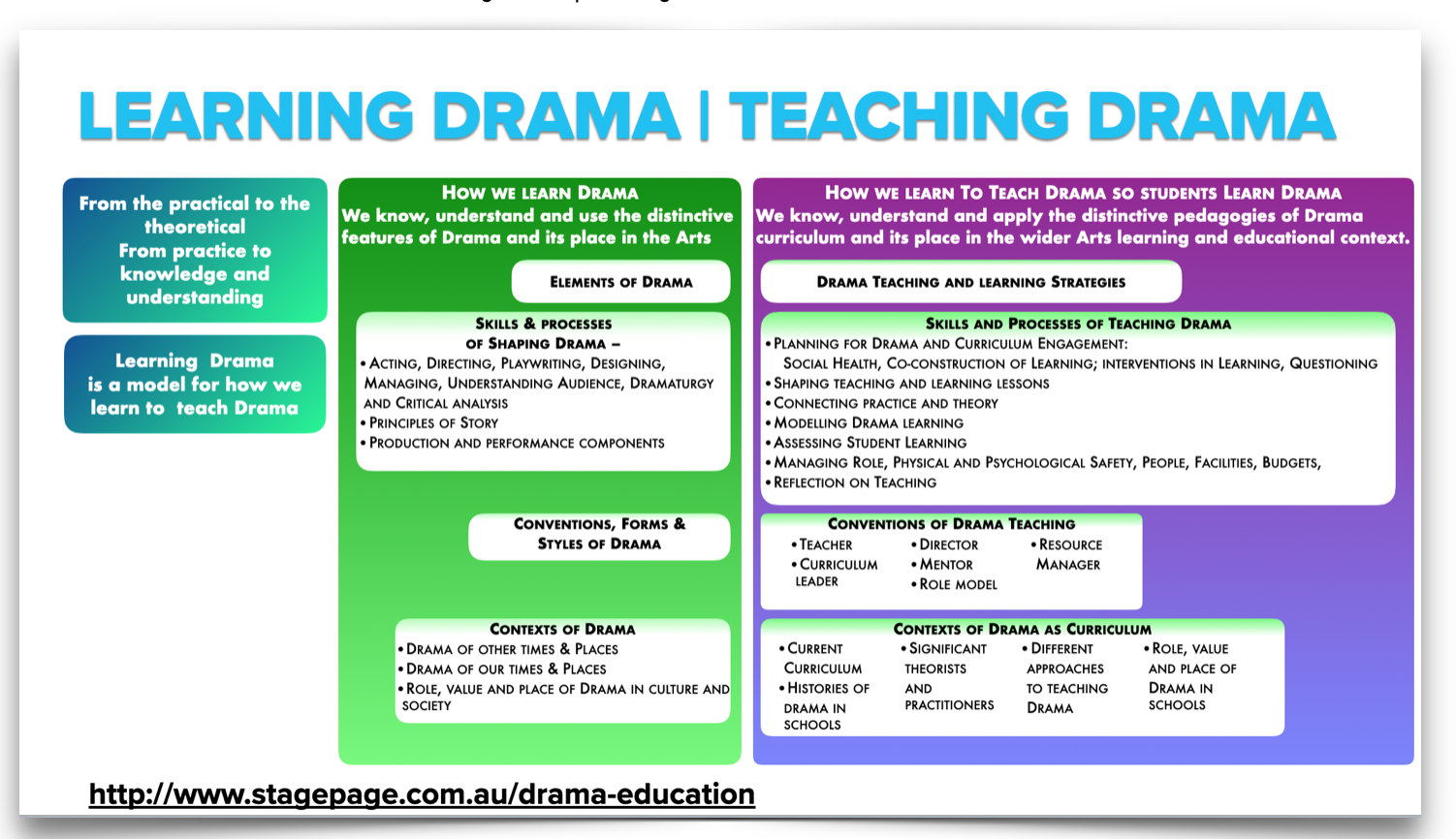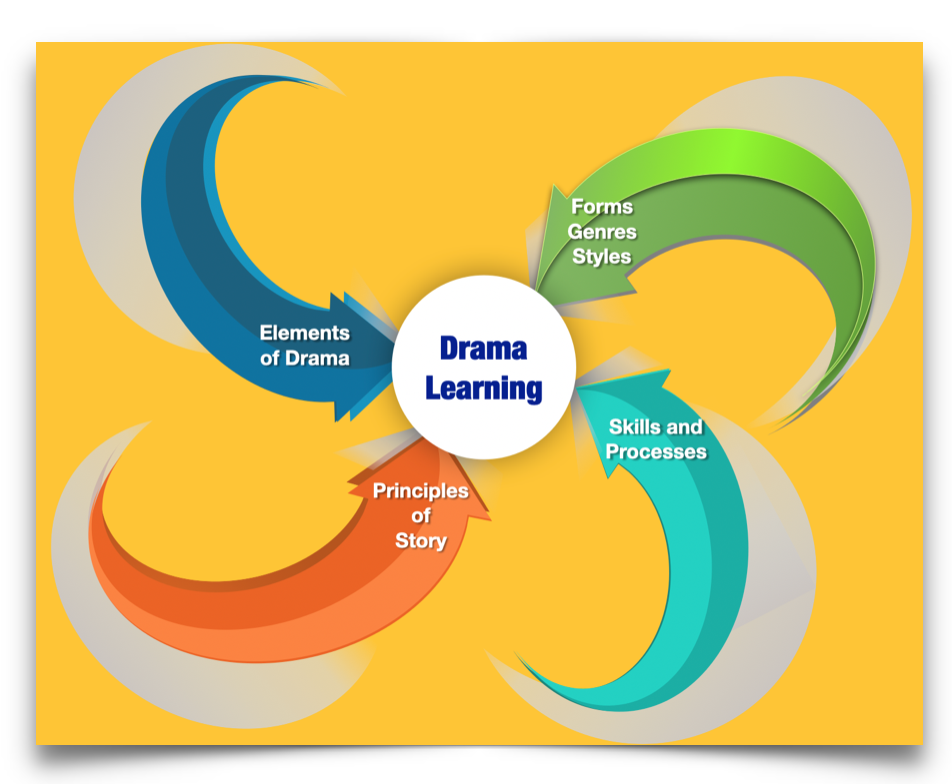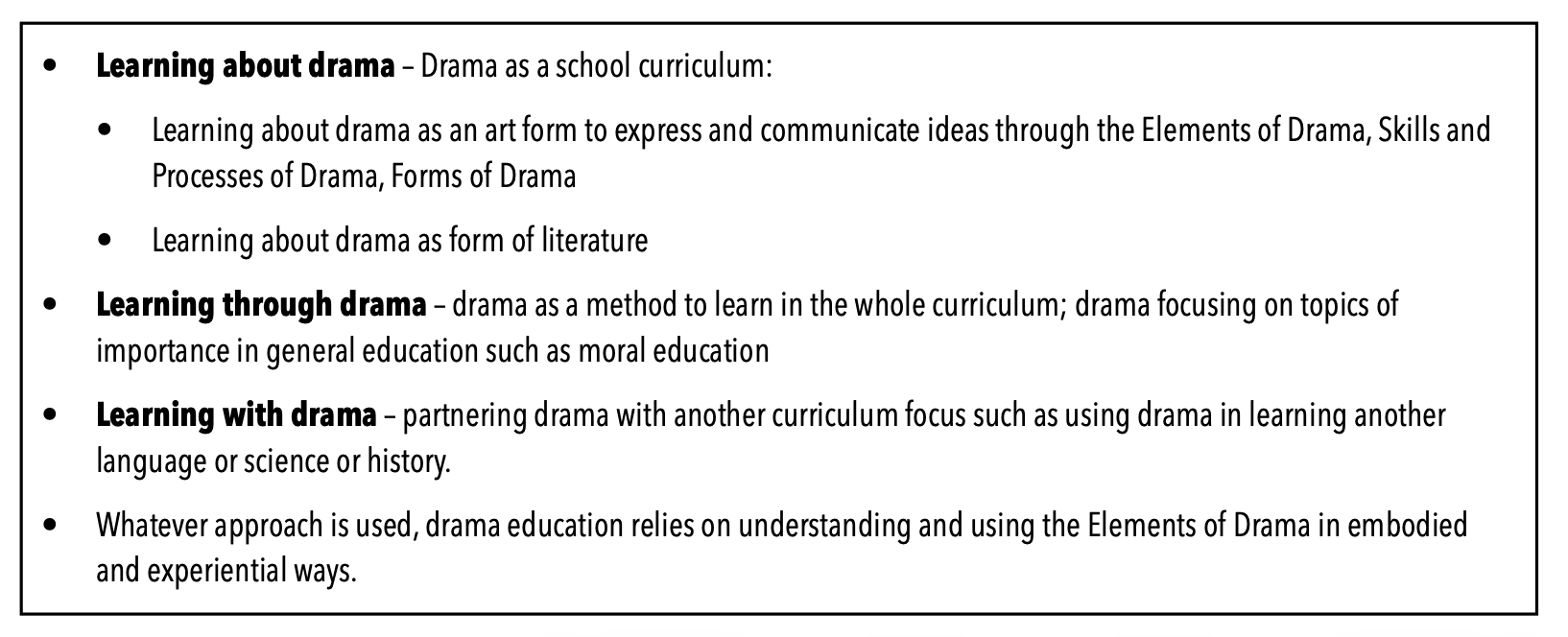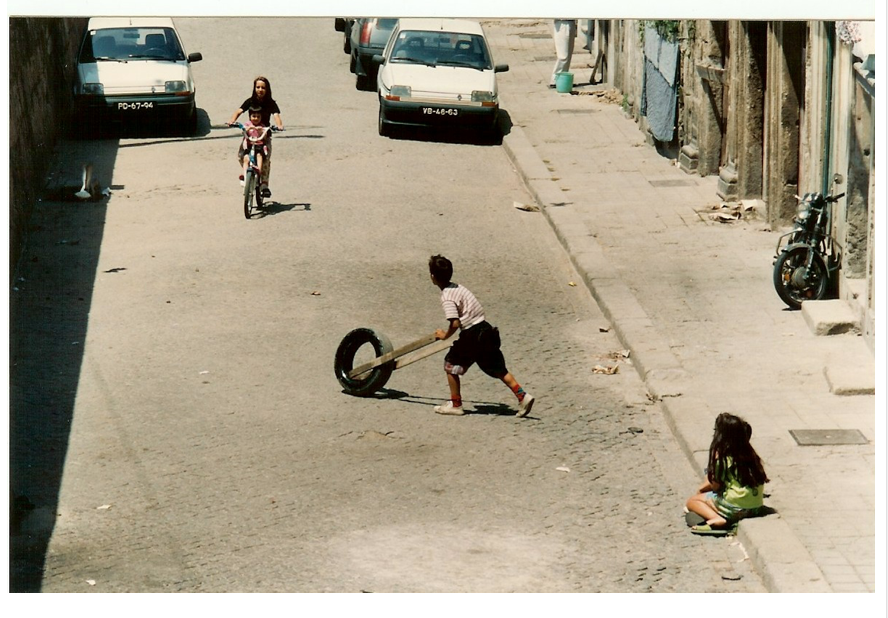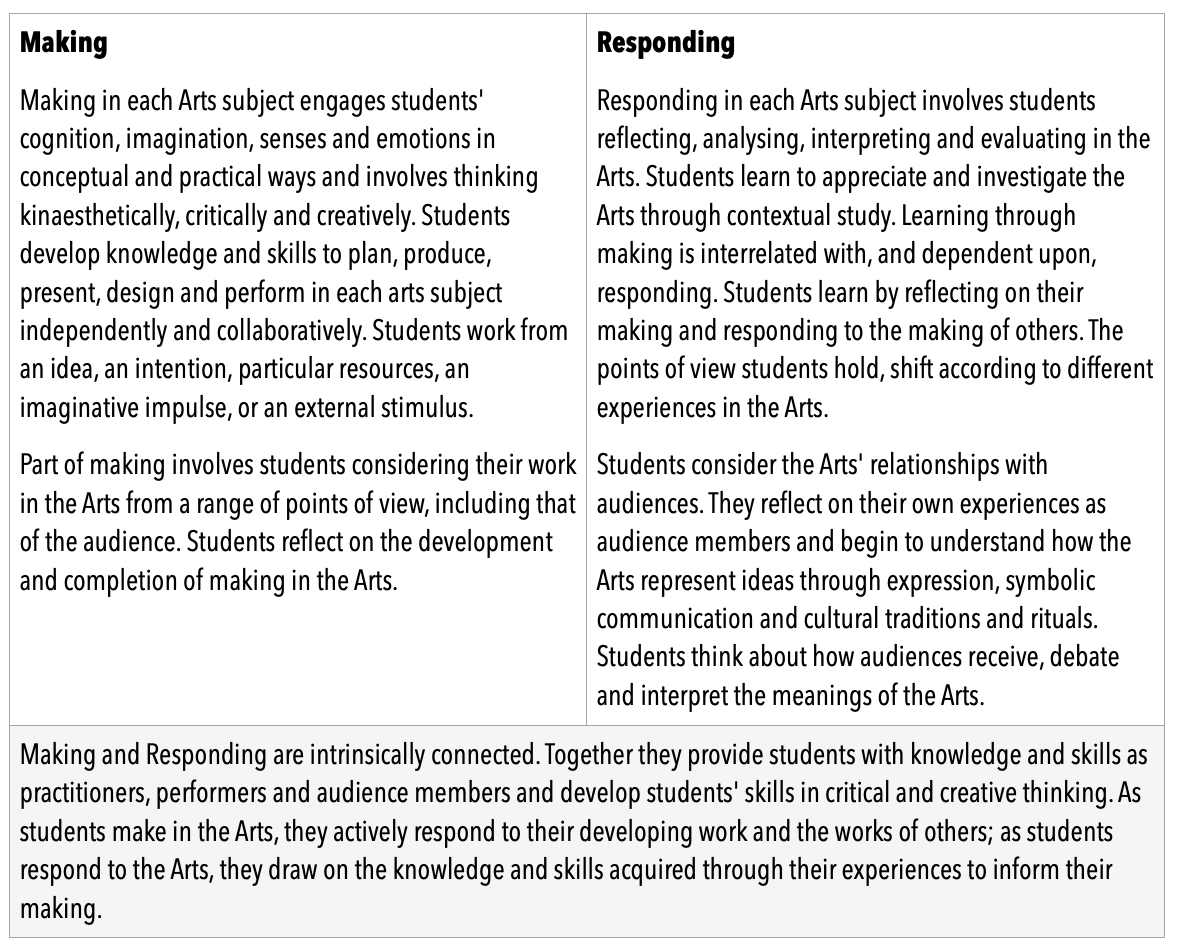Drama Tuesday - Recipes for making drama teachers
/Making a drama teacher is not constructing a robot – the mechanical bolting together of components bought off the shelf or from mail order catalogues. Though maybe, we need some AI learning emerging from that worldview.
A more organic metaphor is needed.
From nature we might see the seed, sprouting seedlings, searching out shoots toward the light; nurturing rain, soil and seasons; budding, fruiting, maturing; cycles of growth, decay, dormancy and rebirth.
From our need for nourishment, we might settle on a kitchen metaphor. What are the ingredients you need for a drama teacher?
Introduction
There are many ways to make a drama teacher. This is one of the most useful I have developed through my years of working as a drama educator.
Ingredients
Interest and desire – copious amounts
The inclination and desire to teach drama (rather than teaching something else)
A disposition for experiential learning – where priority is given to embodied learning
The vision to see the potential of drama for learning and teaching
Knowledge, understanding and experiences in the art form of drama and theatre – dollops
How drama grows from and extends play
How drama works through taking on role – mimesis and identification
How drama tells stories
How drama enables us to express and share with others explores, ideas, emotions and experiences
How drama uses the Elements of Drama – role, character, relationships, situation, focus, tension, space and time, voice and movement, language, contrast, symbol, mood, atmosphere and audience
How drama uses skills and processes to make and share meaning
How drama uses forms and styles
How drama stays the same and changes across time and place
Knowledge and understanding and experiences of teaching drama – spoonfuls
How we learn about, through and with drama
How drama curriculum is structured and used
How we draw on a range of drama teaching and learning strategies so students learn drama
How we we shape and plan drama learning experiences
How we co-construct meaning with student
How we shape learning and teaching environments and contexts responding to the emotional, social and physical needs of students
How we learn from others making and teaching drama
How we reflect on, assess and report student learning in drama and our effectiveness as drama teachers
How, as drama teachers, we have a number of related but distinctive roles: teacher, curriculum designer, director, role model, mentor, resource and facilities manager
Directions
None of these ingredients on their own make a drama teacher.
It is how you bring them all together. It’s the sifting, blending, creaming, combining, folding, together.
Remember: The process is never fully completed. It continues to happen even as we add more and more ingredients.
We taste test as we cook. The eyes, ears, taste buds of the cook are in play at every moment. Is this the right mix? Does it need more time? Are my directions clear and focused? Am I moving too fast? Too slow? Am I sustaining the tension, focus, sills and processes, mix of Elements of Drama?
We reflect. We learn. We sometimes fail. But we always keep trying and learning.
We ask questions. We belong to guilds of drama teachers who openly share discoveries and learn from each other.
Finishing the Cake
The drama cake is never quite finished. It is always in the process of being made.
And, one final essential for this recipe: in the end, as a drama teacher I am the sum of all that I know and do. Each time i step into the drama kitchen I bring with me knowledge and experience that i share with others in that specific place and moment, with that distinct group of people. It is not mechanical. It is not even following someone else’s recipe. It is creating our own recipe. As a teacher I am the sum of all that I am – combined with the people in the learning space with me.
It is not so much what we do as much as who we are.
By the way, there are academic and theorised names for this stuff and researched realities to call on.
There are links between disciplinary or content knowledge of drama and pedagogical content knowledge (Darling-Hammond, Hammerness, Grossman, Rust, & Shulman, 2005).
In learning to teach drama we do so by:
Engaging in a activities like the ones we use to teach drama
Having a specific knowledge base about the content of drama
Knowing and being able to use specific drama teaching strategies
Belonging to a community of drama teachers
Having resources
In addition to these points we also need capacity to be reflective and reflexive about drama teaching.
Bibliography
Darling-Hammond, L., Hammerness, K., Grossman, P., Rust, F., & Shulman, L. (2005). The Design of Teacher Education Programs. In L. Darling-Hammond & J. Bransford (Eds.), Preparing Teachers for a Changing World What Teachers Should Learn and Be Able to Do: Jossey-Bass/Wiley.





